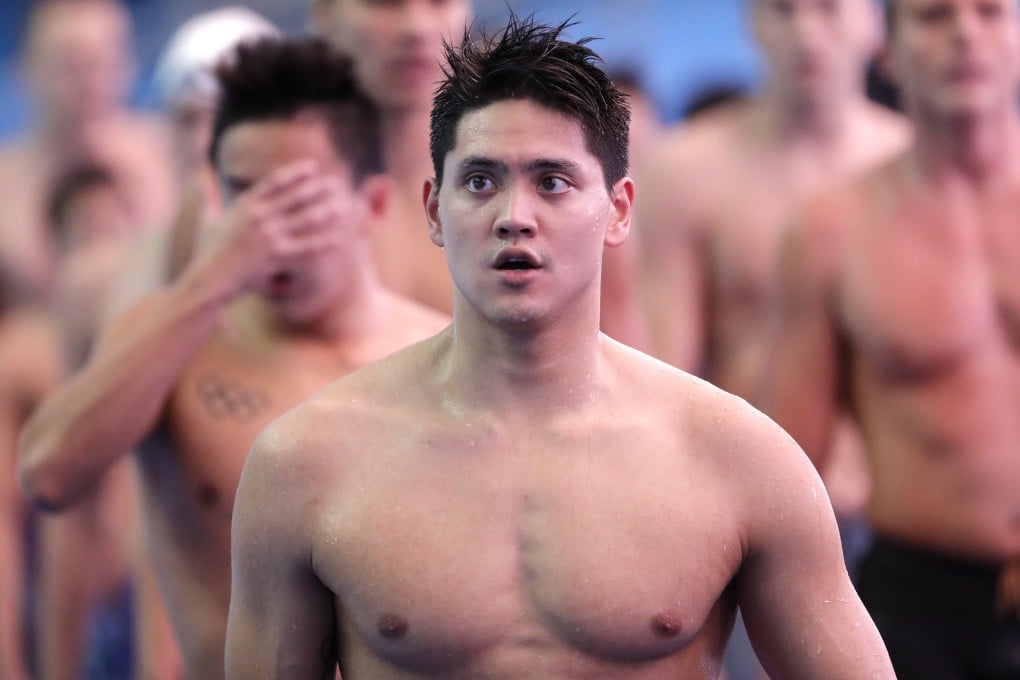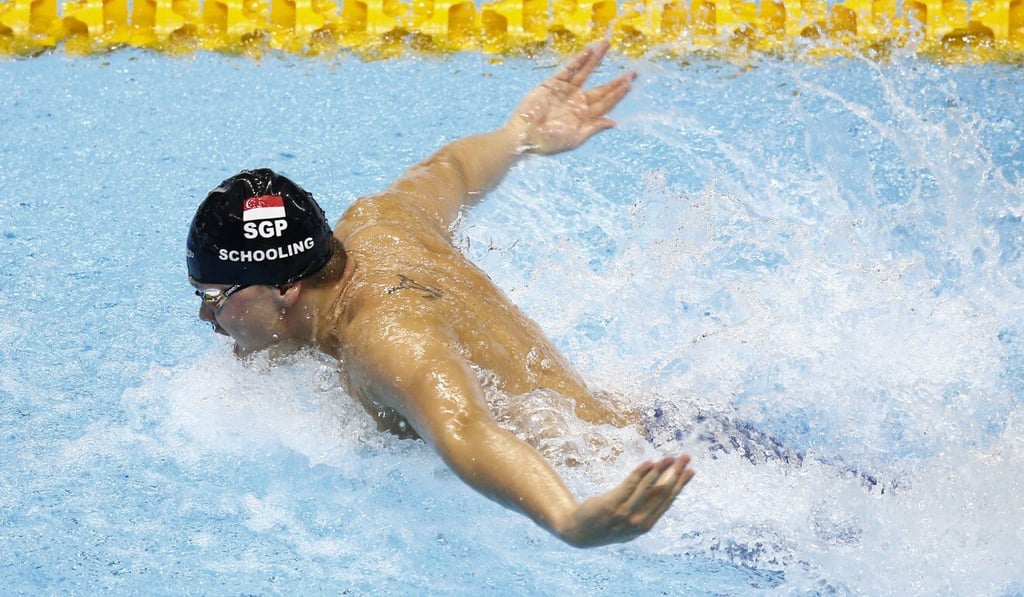Profile | Joseph Schooling: biography, ethnicity, 2016 Olympics medal, earnings and qualifying for Tokyo 2020
- The 26-year-old shot to international swimming fame after winning the 100-metre butterfly at Rio 2016
- Can the Singaporean, who beat swimming legend Michael Phelps in Brazil, make lightning strike twice?

Joseph Schooling became an overnight sensation in the swimming world with one race at a key point in his career, beating his childhood idol in the process.
Now looking to build on that result, we take a look at the swim star who is hoping lightning strikes twice five years later as he tries to grab gold again in Tokyo.
Biography
His sporting drive dates all the way back to the age of six, when the youngster told his family he would compete in the Olympics, after hearing about his grand uncle and high jumper Lloyd Valberg, who became Singapore’s first Olympian at the 1948 Games. His competitive drive was noticed early on by his parents who nurtured his athletic ability.
He left Singapore in 2009 at the age of 13 where he was quickly identified as having talent in the pool. He went on to an illustrious NCAA career where he was a member of the Texas Longhorns swimming team (he studied economics in the classroom), setting and breaking multiple collegiate records in a number of different strokes over his four-year tenure before graduation.

He kicked off his international career in 2014 at the Asian Games, but it was his performance two years later that would shock the swimming world.